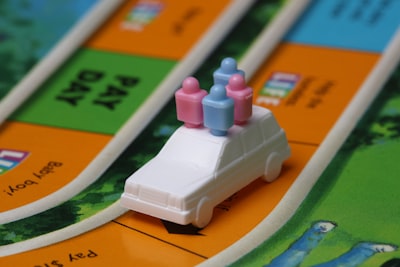- The inability to scream in dreams is a common phenomenon that reflects our difficulty in expressing ourselves or communicating our emotions in waking life.
- Dreams serve as a symbolic representation of our subconscious mind and can indicate unresolved emotions, fears, or obstacles preventing us from fully expressing ourselves.
- The inability to scream can be associated with emotions such as fear, anxiety, or a sense of powerlessness, and may be influenced by factors such as stress and sleep paralysis.
- It is important to explore and address these dream experiences to gain insights into our mental and emotional well-being and find healthy ways to express ourselves in waking life.
Have you ever experienced a terrifying dream where you are being chased or attacked, only to find yourself unable to scream for help? This phenomenon, commonly known as the inability to scream in dreams, is a perplexing experience that many people have encountered. In this article, we will delve into the symbolism and meaning behind this phenomenon, explore common scenarios associated with the inability to scream in dreams, discuss the role of emotions and stress in dreams, explore the connection between sleep paralysis and this phenomenon, and provide tips for managing and understanding these dream experiences.
Understanding the Phenomenon: Inability to Scream in Dreams

1. Symbolism and Meaning of Not Being Able to Scream
Dreams are a reflection of our subconscious mind, often using symbolic imagery to convey messages and emotions. When we find ourselves unable to scream in a dream, it is a powerful symbol of our inability to express ourselves or communicate our emotions in waking life. It may indicate that we are bottling up our feelings or that we are facing obstacles that prevent us from fully expressing our thoughts and emotions. This dream experience suggests that we need to explore ways to better communicate and assert ourselves in our waking life.
2. Common Scenarios Associated with Inability to Scream
The inability to scream in dreams can manifest in various scenarios, each carrying its own symbolic meaning. One common scenario is being chased or attacked, where the dreamer feels intense fear and is unable to scream for help. This can signify a sense of powerlessness or feeling trapped in a situation in our waking life. It may indicate a fear of confrontation or an inability to stand up for ourselves.
Another common scenario is falling from a great height or being lost. In these dreams, the inability to scream can represent a lack of control or a feeling of being overwhelmed. It may symbolize a fear of the unknown or a sense of being unable to find our way in life. These dreams often arise during times of uncertainty or when we are experiencing a significant transition.
3. The Role of Emotions and Stress in Dreams
Dreams provide a means for our subconscious mind to process and cope with our emotions, including stress and anxiety. When we are unable to scream in a dream, it may indicate that we are under significant emotional strain or facing high levels of stress in our waking life. The dream serves as an outlet for these pent-up emotions, allowing us to process and release them in a safe and symbolic manner.
It is important to pay attention to our dreams and the emotions they evoke, as they can provide valuable insights into our mental and emotional well-being. If we consistently have dreams where we are unable to scream, it may be a sign that we need to address and manage our stress levels and find healthy ways to express our emotions in our waking life.
4. Sleep Paralysis and its Connection to the Phenomenon
Sleep paralysis, a state of temporary muscle paralysis that occurs during the transition between sleep and wakefulness, is often linked to the inability to scream in dreams. During sleep paralysis, our brain and body are in different states of consciousness, leading to the sensation of being awake but unable to move or speak. This phenomenon can manifest as a dream where we desperately want to scream but are physically unable to do so.
Sleep paralysis is a natural occurrence that is thought to be triggered by disrupted rapid eye movement (REM) sleep cycles. It can be influenced by factors such as stress, sleep deprivation, and genetics. While sleep paralysis can be a disconcerting experience, it is important to remember that it is a normal phenomenon and not indicative of any underlying mental or physical health issues.
5. Managing and Understanding Inability to Scream in Dreams
If you frequently experience dreams where you are unable to scream, it is worth exploring ways to manage and understand these dream experiences. One approach is to keep a dream journal and write down your dreams upon waking. This can help you identify patterns and themes in your dreams, allowing you to gain insight into your subconscious mind.
Additionally, incorporating relaxation techniques into your daily routine can help reduce stress and promote better sleep. Practices such as meditation, deep breathing exercises, and mindfulness can help calm the mind and improve overall sleep quality. Creating a peaceful sleep environment, adhering to a regular sleep schedule, and avoiding stimulants before bed can also contribute to more restful sleep and a reduction in vivid and disturbing dreams.
Theories Behind the Inability to Scream in Dreams

Have you ever had a dream where you desperately tried to scream but no sound came out? You are not alone. This puzzling phenomenon has been experienced by many people and has led to various theories about its meaning and causes. Here, we explore some of the most popular theories behind the inability to scream in dreams:
1. Emotional Regulation Theory
One theory suggests that the inability to scream in dreams is the body’s way of regulating emotions and preventing the dreamer from experiencing overwhelming fear or stress. It is believed that during the dream state, the brain actively limits the expression of intense emotions to protect the dreamer’s mental well-being.
2. Sleep Paralysis Theory
Another theory points to sleep paralysis as the reason behind the inability to scream in dreams. Sleep paralysis occurs when the brain and body are in different states of consciousness, and the dreamer is temporarily aware of this mismatch. The resulting feeling of being trapped and unable to move or speak can translate into the dream, causing the inability to scream.
3. Psychological Defense Mechanism Theory
According to this theory, the inability to scream in dreams serves as a defense mechanism employed by the subconscious mind to protect the dreamer from the fear and terror experienced during the dream. It allows the dreamer to distance themselves from the intense emotions and maintain a certain level of psychological equilibrium.
4. Neurological Disconnection Theory
The neurological disconnection theory suggests that the inability to scream in dreams may stem from a disconnect between the parts of the brain responsible for conscious thought and vocalization. This disconnection prevents the dreamer from generating the necessary neural pathways to produce vocalizations in the dream state.
5. Unresolved Emotions Theory
Another possible explanation for the inability to scream in dreams is that it reflects the dreamer’s unresolved emotions in their waking life. If the dreamer is suppressing or avoiding expressing their emotions during the day, these pent-up feelings may manifest in dreams as the inability to scream. It serves as a metaphorical representation of the dreamer’s struggle to vocalize their emotions in their waking life.
6. Metaphorical Expression Theory
Dreams are often metaphorical in nature, with symbols and imagery representing deeper meanings. The inability to scream in a dream can be seen as a metaphor for feeling unheard or unable to express oneself in waking life. It may reflect a sense of powerlessness or a fear of speaking up, and serves as a symbolic representation of the dreamer’s struggles with communication and self-expression.
7. Solution-Oriented Theory
An alternative perspective suggests that the inability to scream in dreams is an opportunity for the dreamer to confront and resolve underlying issues in their waking life. By bringing attention to the inability to scream, the dream acts as a catalyst for the dreamer to reflect on their communication patterns, emotional expression, and any barriers preventing them from expressing themselves fully.
While these theories offer possible explanations, it’s important to remember that dreams are highly subjective, and their meanings can vary from person to person. The inability to scream in dreams should be seen as a clue to explore one’s emotional landscape and communication patterns rather than a definitive answer. If the inability to scream in dreams persists or causes distress, it may be helpful to seek support from a mental health professional who can provide guidance and insight.
Physiological and Psychological Implications

Have you ever had a dream in which you were in a frightening situation, but no matter how hard you tried, you just couldn’t scream? It can be a disconcerting and distressing experience, leaving you feeling overwhelmed and helpless. But what does it mean when you can’t scream in a dream? Let’s explore the physiological and psychological implications behind this common dream phenomenon.
1. Associations between Brain Activity and the Inability to Scream
When we dream, our brain goes through various stages of sleep, including rapid eye movement (REM) sleep. During REM sleep, our bodies experience temporary paralysis to prevent us from acting out our dreams. This paralysis is a natural defense mechanism to keep us safe. However, if we wake up during the REM cycle or are in a state between sleep and waking, we may experience the sensation of being unable to move or scream.
The inability to scream in dreams can be attributed to the temporary paralysis of the vocal cords during the REM cycle. This physiological response prevents us from making any sound while dreaming, even if we try to scream with all our might. It’s important to remember that this phenomenon is a normal part of the sleep cycle and does not indicate any underlying health issues.
2. Role of Nightmares, Stress-related Dreams, Lucid Dreams, and Night Terrors
Dreams can be influenced by our emotions and experiences in waking life. Nightmares, stress-related dreams, lucid dreams, and night terrors often involve intense emotions and can contribute to the inability to scream.
Nightmares are vivid and distressing dreams that can evoke fear, anxiety, and terror. These dreams often involve situations where we are being chased, attacked, or threatened. The inability to scream in a nightmare may reflect feelings of helplessness or powerlessness in the face of danger.
Stress-related dreams can arise from our subconscious mind trying to process and cope with stressful situations in our daily lives. These dreams may represent unresolved issues or fears that we are not addressing or expressing when we are awake. The inability to scream in these dreams can symbolize a struggle to vocalize our emotions or stand up for ourselves.
Lucid dreams, on the other hand, occur when we become aware that we are dreaming. In these dreams, we have some level of control over the dream scenario. While it is possible to scream in a lucid dream, it may not have the same effect as in a regular dream. The act of screaming in a lucid dream is more likely to be seen as a conscious action rather than an involuntary reaction.
Night terrors, a type of sleep disorder, can also contribute to the inability to scream in dreams. During a night terror episode, a person may wake up in a state of fear and distress, but be unable to move or scream. These episodes are often accompanied by intense emotions and can be a result of heightened stress or underlying mental health conditions.
3. Emotional Implications: Fear, Anxiety, and Trauma
The inability to scream in a dream can have significant emotional implications. It may indicate feelings of fear, anxiety, or trauma that we are unable to express or confront in our waking lives. Dreams often serve as a way for our subconscious mind to process and work through unresolved emotions and experiences.
Fear is a powerful emotion that can trigger the inability to scream in a dream. It can leave us feeling powerless, alone, and unable to express our emotions. This inability to express fear can be associated with suppressed emotions or a fear of being judged or reprimanded.
Anxiety can also play a role in the inability to scream in dreams. When we are anxious, we may struggle to find our voice and express ourselves assertively. The dream may reflect a fear of speaking up or a feeling of being silenced or ignored in waking life.
Trauma can deeply impact our dreams and lead to the inability to scream. Traumatic experiences can cause fear, helplessness, and a sense of being trapped. The dreamer may relive these experiences in their dreams but find themselves unable to vocalize their emotions.
4. Significance of Resolving the Underlying Issues
The inability to scream in dreams can be a powerful indicator that there are underlying issues and emotions that need to be addressed. Ignoring or suppressing these emotions can lead to increased stress, anxiety, and a sense of powerlessness in both dreams and waking life.
By exploring the underlying issues and working through our emotions, we can find healing and resolution. Seeking support from friends, family, or a therapist can provide a safe space to express our feelings and gain insights into our thoughts and behaviors.
It’s important to remember that dreams are a reflection of our subconscious mind and can offer valuable insights into our emotional state. By acknowledging and processing our emotions, we can create a sense of empowerment and regain control over our dreams and our lives.
The Role and Benefits of Screaming in Dreams

Dreams have long fascinated and intrigued us, as they offer a glimpse into our subconscious minds, allowing us to explore our deepest emotions and thoughts. One common experience in dreams is the inability to scream, leaving us with a sense of frustration and confusion. However, this phenomenon can actually serve an important role in our emotional well-being and personal growth. Let’s explore the role and benefits of screaming in dreams.
1. Emotional Release Through Screaming
Screaming in dreams can serve as a powerful outlet for pent-up emotions. Dreams provide a safe space where we can freely experience and express intense emotions that may be difficult to address in our waking life. When we are unable to scream in a dream, it may indicate that we have suppressed or repressed emotions that need to be released. By allowing ourselves to scream in our dreams, we can find a sense of relief and release, ultimately benefiting our emotional well-being.
2. Screaming as a Means for Communication and Expression
Dreams often use symbols and metaphors to communicate messages to us. When we can’t scream in a dream, it may be a sign that we are struggling to communicate or express ourselves in our waking life. It could suggest that there are aspects of our thoughts and feelings that we are keeping hidden or that we feel unheard and ignored by others. By acknowledging and addressing these communication barriers, we can work towards more open and honest expression in our waking life.
3. Creative and Therapeutic Benefits of Screaming
Screaming in dreams can also have creative and therapeutic benefits. It allows us to tap into our imagination and explore various aspects of ourselves. It can be a catalyst for self-discovery and personal growth, as it provides a safe space to confront fears, confront unresolved issues, and gain insight into our own emotions and behaviors. Additionally, screaming in dreams can serve as a form of catharsis, releasing built-up tension and promoting overall feelings of well-being.
4. Safety Concerns Associated with Attempting to Scream in Dreams
While screaming in dreams can offer emotional release and various benefits, it’s important to approach the topic with caution. Attempting to scream in a dream by forcing the physical act of screaming while asleep can potentially lead to physical stress or injury. It’s crucial to prioritize the safety and well-being of oneself and others while exploring and engaging with dreams. The best approach is to allow the dreams to naturally unfold and provide the emotional release and expression they are intended for.
5. Seeking Support and Understanding
If you frequently experience dreams where you can’t scream, it may be beneficial to seek support from trusted friends, family, or even a therapist. They can provide insights and perspectives to help you understand the underlying emotions and challenges that may be affecting your ability to express yourself fully. Additionally, discussing your dreams can facilitate self-reflection and personal growth.
If you find yourself unable to scream in your dreams, know that you are not alone. Many people experience this common phenomenon, which can be indicative of deeper emotional and psychological issues that need to be addressed. It is important to be gentle with yourself and trust that your unconscious mind is trying to communicate something to you. Consider seeking therapy or counseling to explore your feelings and learn coping mechanisms to express yourself more openly and freely. Remember that your voice matters and deserves to be heard, both in dreams and in waking life. Don’t be afraid to speak up for yourself and let your true self shine through, one step at a time.










Leave a Reply